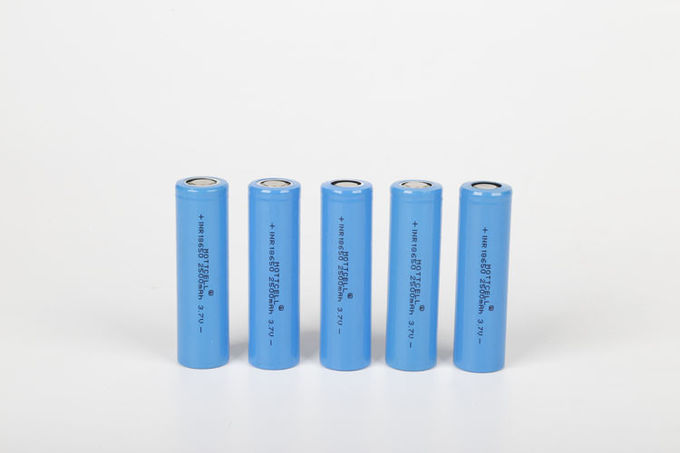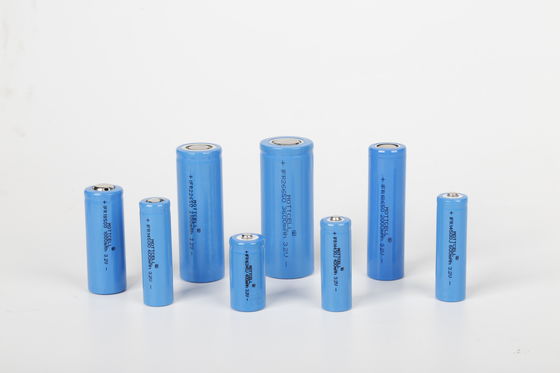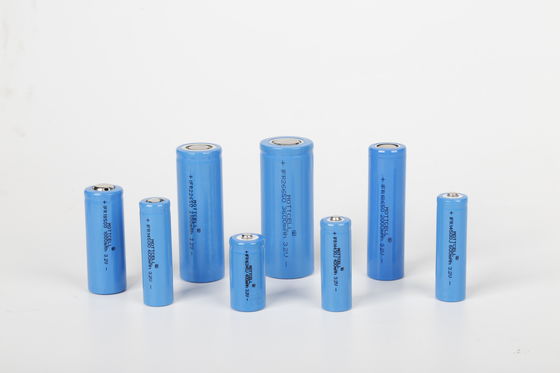3.2V 18650 LITHIUM IRON BATTERY LIFEPO4 CYLINDRICAL BATTERY CELL Solar Energy
| Place of Origin: | Shenzhen |
| Brand Name: | Mottcell |
| Certification: | UN38.3 |
| Model Number: | 3.2V 3.7V |
| Minimum Order Quantity: | 100pcs |
| Price: | unit price: 0.3$ |
| Delivery Time: | 15-20days |
| Payment Terms: | L/C, D/A, D/P, T/T |
| Supply Ability: | 300000 pcs one day |
|
Detail Information |
|||
Product Description
3.2V 18650 LITHIUM IRON BATTERY LIFEPO4 CYLINDRICAL BATTERY CELL Solar Energy


Product Description:
1. **High Energy Density**: Lithium batteries possess a high energy density, allowing them to store more electrical energy in a relatively small volume. This makes them highly popular in portable devices like smartphones and laptops, as well as in electric vehicles.
2. **Long Cycle Life**: Compared to traditional lead-acid batteries, lithium batteries have a longer cycle life, often reaching thousands of charge and discharge cycles. This means a lower frequency of battery replacement during use, reducing overall costs.
3. **Low Self-Discharge Rate**: Lithium batteries exhibit a low self-discharge rate, meaning they lose very little charge when not in use. This is particularly advantageous for devices that require long-term storage.
4. **Fast Charging Capability**: Lithium batteries can achieve rapid charging, with some cells capable of taking in substantial amounts of charge in a short time, greatly enhancing user convenience.
5. **Environmental Friendliness**: Typically, the components of lithium batteries are relatively eco-friendly, and advancements in lithium recycling technology continue to reduce environmental impacts.
6. **Lightweight**: The design of lithium batteries is generally lightweight, helping to reduce the overall weight of devices, which is suitable for portable electronic devices like smartphones and tablets.
7. **Wide Temperature Range**: High-quality lithium batteries can operate over a wide temperature range, making them suitable for various environmental conditions.

Features:
1. **Consumer Electronics**: Devices like smartphones, laptops, and tablets utilize these cells due to their high energy density and compact size, making them exceptionally popular.
2. **Power Tools**: Commonly used in electric screwdrivers, saws, and cordless vacuum cleaners, they deliver robust power and prolonged usage time.
3. **Electric Vehicles**: These cylindrical cells are a preferred choice for electric vehicle battery packs due to their excellent heat dissipation and structural stability.
4. **Energy Storage Systems**: They serve as effective storage solutions for homes or industries, adeptly storing renewable energy from sources like solar or wind.
5. **Electric Bicycles and Scooters**: They also power these portable transportation options, offering efficient electrical support.
These applications reflect the high demand for energy density, charging speed, and safety.
Technical Parameters:
| Property | Value |
|---|---|
| Voltage Rage | 3.65-2.0V |
| Capacity | 500mah-1800mah |
| Nominal Voltage | 3.2V |
| Charging Temp | 0-60℃ |
| Cycle Life | ≥2000 cycles |
| Size | 14500-18650-26650 |
| Discharging Temp. | -30~60˚C |
| High Energy Density | Max.150Wh/Kg |
| Safety | UL,CB,CQC verified |
FAQ:
Q1:What is a sodium-ion battery?
A1:A sodium-ion battery is a new type of battery technology that uses sodium ions as the charge carrier, instead of the traditional lithium ions. This battery has potential high energy density and longevity, as well as the use of safer and more environmentally friendly electrolytes.
Q2:What are the advantages of a sodium-ion battery?
A2:Sodium-ion batteries have some important advantages. Firstly, they have high energy density, which means they can store more electrical energy. Secondly, sodium-ion batteries charge faster and can be charged more quickly. In addition, sodium-ion batteries have a longer lifespan and can be used repeatedly for a longer time. Finally, sodium-ion batteries use safer and more environmentally friendly electrolytes, resulting in less environmental impact.
Q3:What are the differences between a sodium-ion battery and a lithium-ion battery?
A3:The main difference between a sodium-ion battery and a lithium-ion battery is that they use different anode and cathode materials. Lithium-ion batteries use lithium metal as the anode, while sodium-ion batteries use sodium metal as the anode. In addition, the electrolyte of a sodium-ion battery is also different from that of a lithium-ion battery.
Q4:What applications can a sodium-ion battery be used for?
A4:Sodium-ion batteries can be used in many applications. They can be used for power storage systems, such as in renewable energy systems like wind and solar energy. In addition, they can also be used in electric vehicles and electronic devices.
Q5:What are the future trends in the development of sodium-ion batteries?
A5:The future trends in the development of sodium-ion batteries are to improve energy density and lifespan, reduce costs, and achieve large-scale production. In addition, researchers are exploring new electrolyte and electrode materials to further improve the performance and safety of the battery.




